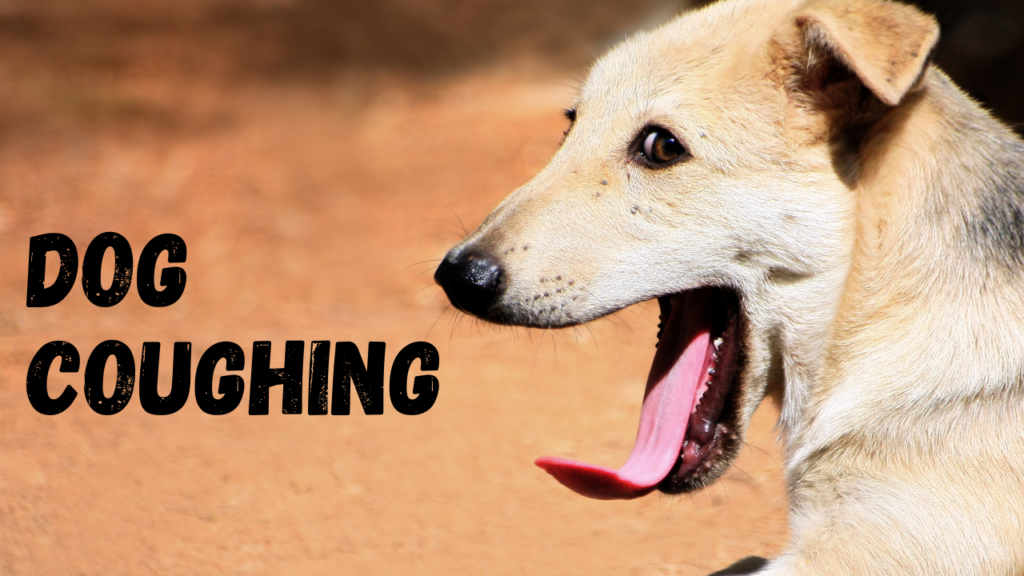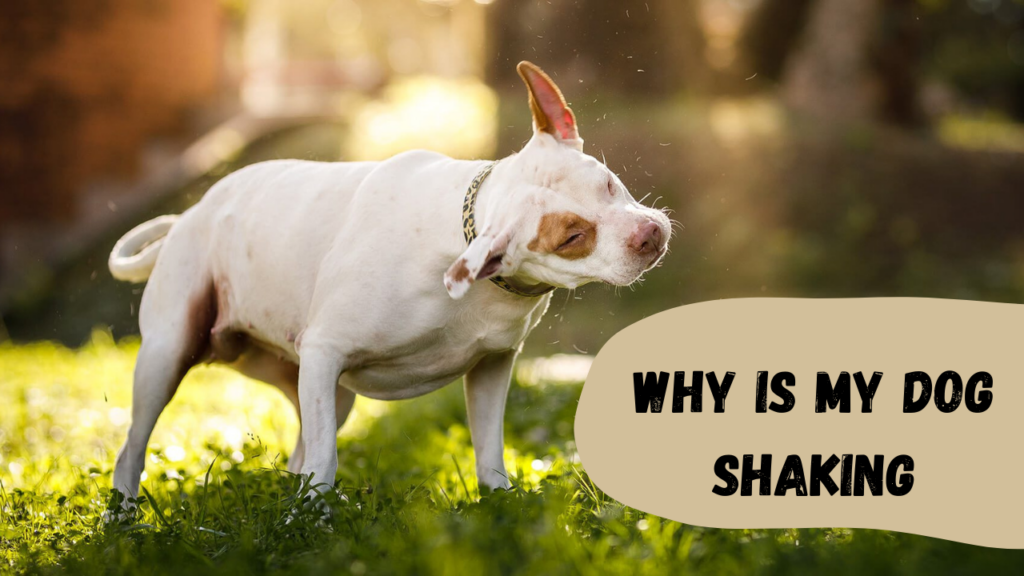If you own a dog, it can be concerning when your friend begins to cough. Like in humans, coughing in dogs may indicate a range of underlying problems. While some causes are rather benign, others may indicate something more major that calls for veterinarian examination. The common reasons of canine coughing will be discussed in this article together with how to identify the symptoms and when one should consult a specialist.
Why Do Dogs Cough?
A normal reflex, coughing helps irritants—such as dust, mucus, or foreign objects—clear the airways. It’s a defense system that lets the body eliminate unwelcome particles and keep clear, healthy airways. Though coughing is a natural reaction, in dogs frequent or persistent coughing could point to an underlying medical problem.
Common Causes of Dog Coughing
Dogs can cough for a lot of different possible reasons. While some are mild and readily treatable, others can call for more major medical intervention. Here are some of the most often occurring causes of your dog’s coughing:
1. Kennel Cough (Infectious Tracheobronchitis)
Particularly in dogs who have been in close proximity to other dogs, such at a kennel, dog park, or grooming salon, kennel cough is one of the most often occurring causes of coughing in dogs. Most usually Bordetella bronchiseptica and the canine parainfluenza virus, kennel cough is highly contagious and caused by a mix of bacteria and viruses.
Symptoms of kennel cough include:
- A dry, hacking cough that sounds like the dog is trying to clear its throat
- Gagging or retching after coughing
- Mild fever and lethargy
- Watery eyes or nasal discharge
Although kennel cough can cause great suffering even if it usually does not kill a healthy dog and will pass on their own. Sometimes, particularly in pups, older dogs, or dogs with compromised immune systems, it might evolve into a more severe respiratory infection.
2. Allergies
Dogs can have allergies, much as people can. A dog’s airways can be irritated and coughing results from environmental allergens including pollen, dust mites, mildew, and smoke. Apart from coughing, allergic responses could bring sneezing, itching, watery eyes, and nasal discharge.
If your dog coughs from allergies, you may find that the coughing occurs more often in particular seasons or in particular surroundings, such when you walk them in an area heavy in pollen.
3. Heart Disease
Another likely reason dogs cough is heart illness, especially congestive heart failure. Coughing results from fluid accumulating in the lungs when a dog’s heart is not effectively pumping blood. Because the fluid accumulates when the dog is lying down, this kind of cough is usually worst at night or following exercise.
Dogs with heart disease may also show other symptoms including:
- Difficulty breathing or labored breathing
- Weakness or lethargy
- Reduced appetite
- Swollen abdomen or legs
- Fainting or collapsing
Should any of these symptoms accompany your dog’s cough, you should visit a veterinarian right away since untreated heart disease can be fatal.
4. Collapsed Trachea
Although it can develop in larger breeds as well, collapsed trachea is a disorder mostly affecting tiny and toy breed dogs. Cartilage rings found in the trachea, sometimes known as the windpipe, assist to maintain open the airways. These cartilage rings weaken in dogs with a collapsed trachea, which causes the airway to partially close and produces coughing, wheezing, and trouble breathing.
Usually a dry, honking sound, the cough connected with a collapsed trachea may be brought on by excitement, exertion, or pressure on the throat, from a collar. Severe cases might cause coughing to become chronic and trouble breathing.
5. Respiratory Infections
Coughing in a dog can result from bacterial or viral diseases compromising their respiratory system. In the lungs, bronchi, and trachea these illnesses can induce inflammation and discomfort. Apart from coughing, dogs suffering from respiratory problems may exhibit other signs including:
- Nasal discharge (clear or yellow/green)
- Sneezing
- Loss of appetite
- Fever
- Lethargy
Among the several pathogens that could lead to respiratory illnesses include Bordetella bronchiseptica, canine influenza virus, and canine distemper virus. Sometimes an infection is serious, particularly if it affects the lungs (pneumonia), which calls for either antibiotics or antiviral therapy.
6. Parasites
Dogs may cough from some parasites including lungworms and heartworms. Transmitted by mosquito bites, heartworms can reside in the lungs and heart of a dog, aggravating inflammation and coughing. More often occurring in some geographical areas, lungworms can also affect a dog’s airways and cause coughing.
Often chronic, parasite-related coughing may be accompanied by other symptoms including weight loss, nausea, or dyspnea. Regular preventative medications and veterinary visits are crucial to stop major health issues from being caused by heartworm or lungworm infection if your dog has been in locations with high risk of either parasite.
7. Foreign Object Inhalation
Naturally interested, dogs occasionally inhale or swallow strange objects like tiny toys, food, or trash. An object caught in the dog’s throat or airways could irritate it and induce coughing. Your dog might display symptoms of discomfort such pawing at their lips or difficulties breathing, and the coughing could be sudden and strong.
See medical treatment right away if you believe your dog has inhaled a foreign object. The object could have to be taken out to stop other problems such infection or choking.
When to Be Concerned About a Dog’s Cough
Although occasional coughing is natural and usually goes away on its own, severe or chronic coughing should not be taken under any kind of disregard. Your dog should be seen by a veterinarian if its cough lasts more than a few days or if it exhibits any of the following:
- Problems breathing, sometimes known as dyspnea
- Retching or lagging
- Absence of appetite or weight loss
- lethargy or frailty
- Making mucous or coughing blood.
- Sneezing or loud breathing
- leg or abdomen swelling
These symptoms could point to a more major underlying illness like heart disease, lung infections, or collapsed trachea that calls for quick medical attention.
Treatment Options for Dog Coughing
The underlying cause of your dog’s coughing will determine their treatment. Here are some broad therapy choices your veterinarian might suggest:
- Antibiotics or Antivirals: Should a bacterial or viral illness cause your dog’s cough, your veterinarian might write prescriptions for antibiotics or antiviral drugs to aid in infection clearance.
- Cough Suppressants or Expectorants: Your veterinarian could advise drugs that help loosen mucus or suppress coughing for some kinds of coughs to enable your dog to easy clear their airways.
- Heart Medication: Should heart illness be the source of your dog’s cough, prescriptions for diuretics, ACE inhibitors, or beta-blockers could be written to help control the ailment and lessen coughing.
- Surgical Intervention: Should a trachea collapse or foreign object inhalation arise, surgery could be necessary to fix the problem.
- Parasite Treatment: Should parasites be the reason your dog cough, your veterinarian will write prescriptions for drugs to eradicate the parasites and stop more lung or heart damage.
- Environmental Changes:Dogs with allergies may find coughing lessened by avoiding allergens and running air purifiers. Sometimes a prescription for antihistamines or steroids is given to control allergic responses.
Preventing Coughing in Dogs
Although some factors of coughing cannot be avoided, there are actions you may do to lower the risk of some diseases:
- Keep your dog’s vaccinations up to date to protect them from infections like kennel cough and canine influenza.
- Use heartworm preventatives to protect your dog from heartworm infection.
- Avoid exposure to allergens by keeping your dog indoors during high pollen seasons or in areas with heavy pollution.
- Regular vet checkups can help detect health issues early and prevent serious complications.
- Use a harness instead of a collar for small dogs with tracheal issues to reduce pressure on their throat.
Conclusion
From little irritants to major health issues, a number of things can cause coughing in dogs. While certain forms of coughing are benign and transient, severe or constant coughing should not be taken lightly. See a veterinarian to find the underlying reason and administer the suitable treatment if your dog’s cough is accompanied by other symptoms or lasts more than a few days.
Understanding the reasons of dog coughing and keeping an eye on your dog’s symptoms will help you to make sure your pet remains content, healthy, and comfortable.

Andy Parker is a dog lover, writer, and senior editor at BarkPicks. With years of experience covering canine health, training, and gear, he helps pet parents make smarter choices for happier, healthier dogs. Andy shares his home (and heart) with two rescue pups, Charlie and Mia.



